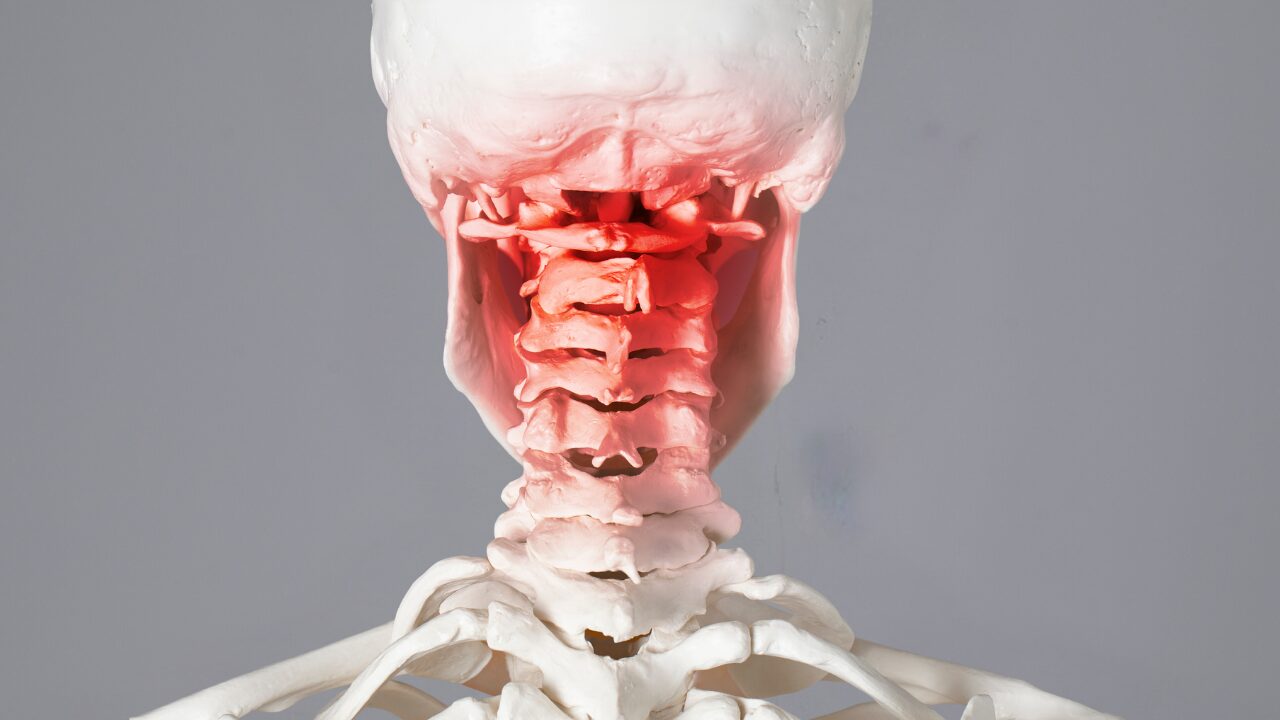Most dizziness comes from somewhere in our ears, however it can also comes from our necks. Cervicogenic dizziness is dizziness the presence of imbalance, unsteadiness, and disorientation that is caused by the cervical spine. This could be your source of dizzy symptoms when other causes of dizziness are ruled out. People with cervicogenic dizziness tend to report that they have a limited range of neck motion, neck pain, and may frequently get headaches. This kind of headache is not to be confused with a migraine, and the symptoms are different than Vestibular Migraines. Most of the time, we are unsure why exactly this occurs, but frequently we associate it with a whiplash injury, or mechanical changes to the cervical spine, degeneration, or inflammation. Other diagnoses that frequently mimic the symptoms of cervicogenic dizziness are whiplash associated disorder, cervical arterial dysfunction, and vertebral basilar insufficiency. At the moment, there are no incredibly specific tests to rule in cervicogenic dizziness, so you need to rely on your symptom history in order to come to a diagnosis.
Symptoms & Diagnosis(1)
Because cervicogenic dizziness doesn’t have a test that rules in the diagnosis, it is imperative to articulate the clarify your symptoms with your PT or other healthcare provider. Symptoms of cervicogenic dizziness last for minutes to hours at a time, and consist of:
- Imbalance
- Unsteadiness
- Lightheadedness
- Disorientation
These symptoms should be consistent with, and related to, pain in the cervical spine. The pain can be at rest, with palpation, with movement, or a combination; additionally the symptoms should subside with interventions that alleviate neck pain.. associated with head movements and cervical spine position changes. This can be hard to differentially diagnose because other dizziness diagnoses are associated with head turns, head position changes, and headaches. The most commonly reported symptom aggravating factors associated with cervicogenic dizziness are:
- Fatigue
- Head/cervical movement
- Anxiety
- Stress
In order to diagnose this properly, it is essential to rule out other diagnoses before landing on cervicogenic dizziness. Other symptoms to consider that may lead to another diagnosis are:
- Aural fullness (feeling of clogged ears)
- Tinnitus
- Oscillopsia
- Cardiovascular factors
- Anything exacerbated by busy environments, positional changes, exertion, or specific activities
In an article by Reiley et.al., authors created an algorithm for diagnosing cervicogenic dizziness, it can be found here!
Treatment(1)
The treatment for cervicogenic dizziness is helping your head and neck relearn spatial orientation. Part of your evaluation should include a manual evaluation of your cervical spine, palpation for tenderness, and assessment of your posture. Oftentimes addressing three things will be the first part of your treatment. Treating this by joint-position-sensation, or neuromuscular re-education is going to be very important. Relocation tasks are the most common form of these, this is frequently done with laser pointers attached to your head.
- Begin in a seated position with a laser pointer headband. The laser should be pointed at the wall, directed at a target in front of you.
- Position your head so the laser is at the center of the target.
- Move your head to the right, and return to center, positioning the laser on the center of the target each time.
- To make this more difficult, perform the exercise with your eyes closed, checking where the laser ends each time.
Physical Therapy (1)
Your physical therapist should be able to both diagnose and treat your symptoms of cervicogenic dizziness. It is important that your physical therapist make the differential diagnosis between other vestibular dysfunction and causes of dizziness, and cervicogenic dizziness. Treating your neck pain and completing neuromuscular re-education will be vital for your recovery and symptom relief.
Source:
(1) Reiley, Alexander S et al. “How to diagnose cervicogenic dizziness.” Archives of physiotherapy vol. 7 12. 12 Sep. 2017, doi:10.1186/s40945-017-0040-x. https://www.ncbi.nlm.nih.gov/pmc/articles/PMC5759906/
Latest articles

Can Diet and Lifestyle Changes Help With a Vestibular Disorder?

Navigating the Maze of Vestibular Disorders: Understanding Neuritis and Labyrinthitis




